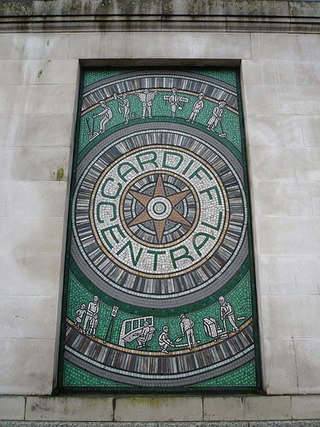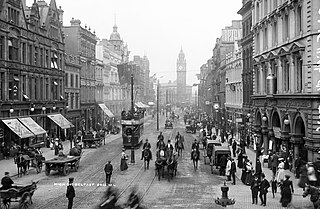In the terminology of law, an assault is the act of causing physical harm or unwanted physical contact to another person, or, in some legal definitions, the threat or attempt to do so. It is both a crime and a tort and, therefore, may result in criminal prosecution, civil liability, or both. Additionally, assault is a criminal act in which a person intentionally causes fear of physical harm or offensive contact to another person. Assault can be committed with or without a weapon and can range from physical violence to threats of violence. Assault is frequently referred to as an attempt to commit battery, which is the deliberate use of physical force against another person. The deliberate inflicting of fear, apprehension, or terror is another definition of assault that can be found in several legal systems. Depending on the severity of the offense, assault may result in a fine, imprisonment, or even death.
Robbery is the crime of taking or attempting to take anything of value by force, threat of force, or by use of fear. According to common law, robbery is defined as taking the property of another, with the intent to permanently deprive the person of that property, by means of force or fear; that is, it is a larceny or theft accomplished by an assault. Precise definitions of the offence may vary between jurisdictions. Robbery is differentiated from other forms of theft by its inherently violent nature ; whereas many lesser forms of theft are punished as misdemeanors, robbery is always a felony in jurisdictions that distinguish between the two. Under English law, most forms of theft are triable either way, whereas robbery is triable only on indictment. The word "rob" came via French from Late Latin words of Germanic origin, from Common Germanic raub "theft".

A riot or mob violence is a form of civil disorder commonly characterized by a group lashing out in a violent public disturbance against authority, property, or people.

A power of attorney (POA) or letter of attorney is a written authorization to represent or act on another's behalf in private affairs, business, or some other legal matter. The person authorizing the other to act is the principal, grantor, or donor. The one authorized to act is the agent, attorney, or in some common law jurisdictions, the attorney-in-fact.
Common-law marriage, also known as non-ceremonial marriage, sui iuris marriage, informal marriage, de facto marriage, or marriage by habit and repute, is a marriage that results from the parties' agreement to consider themselves married and subsequent cohabitation, rather than through a statutorily defined process. Not all jurisdictions permit common law marriage, but will typically respect the validity of such a marriage lawfully entered in another state or country.
In criminal law, diminished responsibility is a potential defense by excuse by which defendants argue that although they broke the law, they should not be held fully criminally liable for doing so, as their mental functions were "diminished" or impaired.

The High Court of Justiciary is the supreme criminal court in Scotland. The High Court is both a trial court and a court of appeal. As a trial court, the High Court sits on circuit at Parliament House or in the adjacent former Sheriff Court building in the Old Town in Edinburgh, or in dedicated buildings in Glasgow and Aberdeen. The High Court sometimes sits in various smaller towns in Scotland, where it uses the local sheriff court building. As an appeal court, the High Court sits only in Edinburgh. On one occasion the High Court of Justiciary sat outside Scotland, at Zeist in the Netherlands during the Pan Am Flight 103 bombing trial, as the Scottish Court in the Netherlands. At Zeist the High Court sat both as a trial court, and an appeal court for the initial appeal by Abdelbaset al-Megrahi.

Taff Vale Railway Co v Amalgamated Society of Railway Servants [1901] UKHL 1, commonly known as the Taff Vale case, is a formative case in UK labour law. It held that, at common law, unions could be liable for loss of profits to employers that were caused by taking strike action.
An accessory is a person who assists, but does not actually participate, in the commission of a crime. The distinction between an accessory and a principal is a question of fact and degree:

A procurator fiscal, sometimes called PF or fiscal, is a public prosecutor in Scotland, who has the power to impose fiscal fines. They investigate all sudden and suspicious deaths in Scotland, conduct fatal accident inquiries and handle criminal complaints against the police. They also receive reports from specialist reporting agencies such as His Majesty's Revenue and Customs.
Jury selection is the selection of the people who will serve on a jury during a jury trial. The group of potential jurors is first selected from among the community using a reasonably random method. Jury lists are compiled from voter registrations and driver license or ID renewals. From those lists, summonses are mailed. A panel of jurors is then assigned to a courtroom.

Commonwealth v. Hunt, 45 Mass. 111 (1842), was a case in the Massachusetts Supreme Judicial Court on the subject of labor unions. Prior to Hunt the legality of labor combinations in America was uncertain. In March 1842, Chief Justice Lemuel Shaw ruled that labor combinations were legal provided that they were organized for a legal purpose and used legal means to achieve their goals.
In English law, provocation was a mitigatory defence to murder which had taken many guises over generations many of which had been strongly disapproved and modified. In closing decades, in widely upheld form, it amounted to proving a reasonable total loss of control as a response to another's objectively provocative conduct sufficient to convert what would otherwise have been murder into manslaughter. It only applied to murder. It was abolished on 4 October 2010 by section 56(1) of the Coroners and Justice Act 2009, but thereby replaced by the superseding—and more precisely worded—loss of control defence.

A Scottish statutory instrument is subordinate legislation made by the Scottish Ministers, as well as subordinate legislation made by public bodies using powers provided to be exercisable by Scottish statutory instrument. SSIs are the main form of subordinate legislation in Scotland, being used by default to exercise powers delegated to the Scottish Ministers, the Lord Advocate, the High Court of Justiciary, the Court of Session, and the King-in-Council.
Rape is a type of sexual assault initiated by one or more persons against another person without that person's consent. The act may be carried out by physical force, under threat or manipulation, by impersonation, or with a person who is incapable of giving valid consent.

Quinn v Leathem [1901] UKHL 2, is a case on economic tort and is an important case historically for British labour law. It concerns the tort of "conspiracy to injure". The case was a significant departure from previous practices, and was reversed by the Trade Disputes Act 1906. However, the issue of secondary action was later restricted from the Employment Act 1980, and now the Trade Union and Labour Relations (Consolidation) Act 1992. The case was heavily controversial at the time, and generated a large amount of academic discussion, notably by Wesley Newcomb Hohfeld, which continued long after it was overturned.

Scots property law governs the rules relating to property found in the legal jurisdiction of Scotland. As a hybrid legal system with both common law and civil law heritage, Scots property law is similar, but not identical, to property law in South Africa and the American state of Louisiana.

Scots criminal law relies far more heavily on common law than in England and Wales. Scottish criminal law includes offences against the person of murder, culpable homicide, rape and assault, offences against property such as theft and malicious mischief, and public order offences including mobbing and breach of the peace. Scottish criminal law can also be found in the statutes of the UK Parliament with some areas of criminal law, such as misuse of drugs and traffic offences appearing identical on both sides of the Border. Scottish criminal law can also be found in the statute books of the Scottish Parliament such as the Sexual Offences (Scotland) Act 2009 and Prostitution (Scotland) Act 2007 which only apply to Scotland. In fact, the Scots requirement of corroboration in criminal matters changes the practical prosecution of crimes derived from the same enactment. Corroboration is not required in England or in civil cases in Scotland. Scots law is one of the few legal systems that require corroboration.
Copperweld Corp. v. Independence Tube Corp., 467 U.S. 752 (1984), is a major US antitrust law case decided by the Supreme Court concerning the Pittsburgh firm Copperweld Corporation and the Chicago firm Independence Tube. It held that a parent company is incapable of conspiring with its wholly owned subsidiary for purposes of Section 1 of the Sherman Act because they cannot be considered separate economic entities.

An act of the Scottish Parliament is primary legislation made by the Scottish Parliament. The power to create acts was conferred to the Parliament by section 28 of the Scotland Act 1998 following the successful 1997 referendum on devolution.








